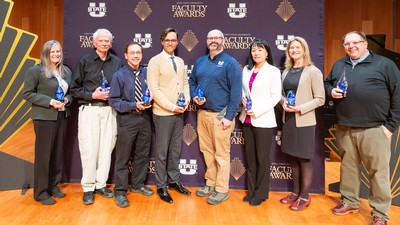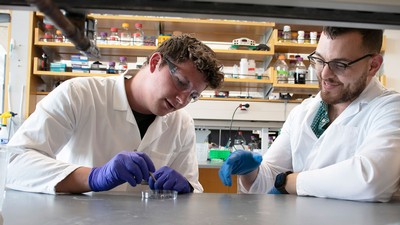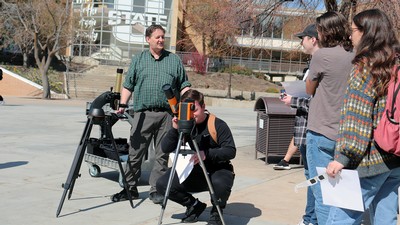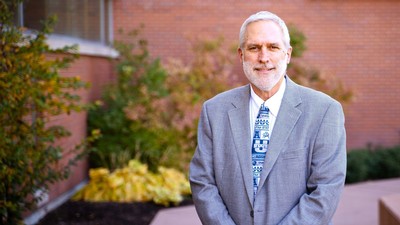How Faith-Based Diplomacy Counteracts Religious Extremism
Dr. Douglas Johnston, founder and president of the Washington, D.C., based Center for Religion and Diplomacy will speak at Utah State University Tuesday, Oct. 13, offering "Faith-based Diplomacy as a Counter to Violent Extremism." The lecture begins at 4:30 p.m. at the Taggart Student Center Auditorium on USU's Logan campus.
Douglas Johnston, founder and president of the Washington, D.C., based Center for Religion and Diplomacy will speak at Utah State University Tuesday, Oct. 13, offering “Faith-based Diplomacy as a Counter to Violent Extremism.” The lecture begins at 4:30 p.m. at the Taggart Student Center Auditorium on USU’s Logan campus.
Johnson will detail how his organization helped end a 21-year-old civil war, as well as how it brokered the release of 14 Taliban-held hostages. As they work to prevent violence and diffuse religious conflict in some of the most dangerous regions of the world, Johnston and his team use diplomatic “back-channels” and “faith-based diplomacy” to effect positive change in situations where traditional diplomacy would otherwise fall short.
Johnston founded the Center for Religion and Diplomacy to “prevent and resolve identity-based conflicts that exceed the reach of traditional diplomacy by incorporating religion as part of the solution.” The Center works at the grass-roots level to counter religious and political extremism by deploying inter-religious action teams to areas where conflict threatens or has already erupted.
An example of this mission in action is the center’s work with 2,700 Pakistani leaders on madrasa education reform, working together to incorporate critical thinking, adherence to principles of religious tolerance and women’s rights into curricula of these Islamic religious educational centers.
Named in 2008 the “Father of Faith-Based Diplomacy” by a leading Christian journal, Johnston’s education and training includes a doctorate in political science from Harvard and graduation with distinction from the U.S. Naval Academy. At the age of 27, he was the youngest officer in the Navy to qualify for command of a nuclear submarine. He has held high level public and private sector positions that have given him significant hands-on experience in the field of preventative diplomacy, and he has served as deputy assistant secretary of the Navy and as a planning officer with the President’s Office of Emergency Preparedness. His recognition that religious literacy was a missing component of international diplomacy deeply influenced both Madeline Albright and John Kerry in their respective tenures as U.S. Secretaries of State. Earlier this year, Johnston received the inaugural Distinguished Scholar Award for Religion and International Affairs from the International Studies Association at its annual convention in New Orleans.
“The future of our world depends upon leaders who are not only literate about other religions, but who can discuss religion intelligently and compassionately to bridge the faith divide,” said USU faculty member Bonnie Glass-Coffin, one of the event’s organizers.
“Dr. Johnston is an outstanding example of someone who explores the positive role that religious or spiritual factors can play in preventing or resolving conflict while advancing social change based on justice and reconciliation,” said a testimonial on the center’s website. “He makes a strong case for incorporating religious considerations into the practice of international politics and provides a blueprint for doing so successfully.”
The event is one of this year’s Tanner Lectures at USU and is sponsored by the USU College of Humanities and Social Sciences as well as the Religious Studies Program. More information about the event can be found at the Religious Studies website (religiousstudies@usu.edu) or contact Glass-Coffin via email, bonnie.glasscoffin@usu.edu.
The lecture is free and open to the public.
In addition to his lecture, Johnson will be interviewed on Utah Public Radio Oct. 13 as part of its “Access Utah” program at 9 a.m. with Tom Williams.
Related links:
USU College of Humanities and Social Sciences
Source: USU Religious Studies Program
Contact: Bonnie Glass-Coffin, 435-797-4064; bonnie.glasscoffin@usu.edu
Comments and questions regarding this article may be directed to the contact person listed on this page.






